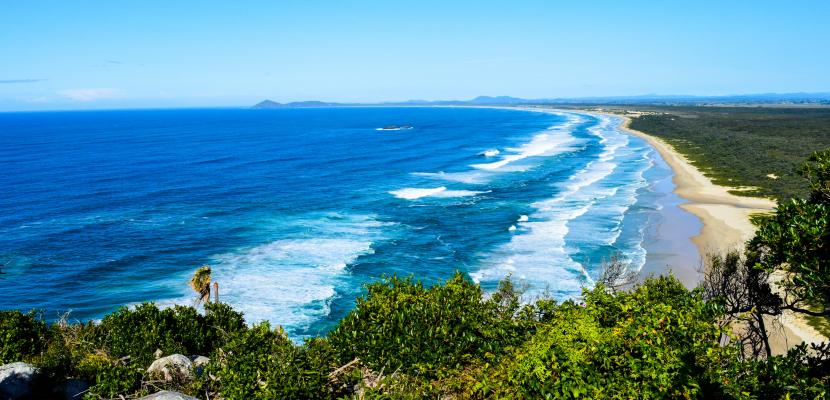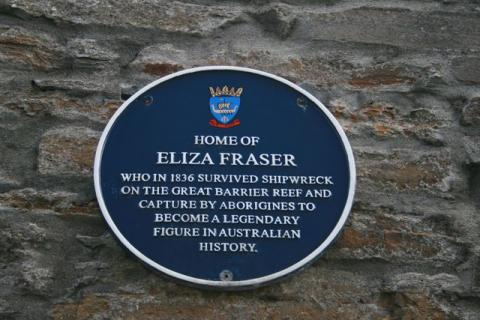
Earlier this month Fraser Island was officially renamed K’Gari.
K’Gari is the word for paradise in the language of the island’s original inhabitants, the Butchulla.
British colonialists chose the name Fraser Island after accident prone English mariner Captain James Fraser and his wife Eliza were marooned there after their ship, the Stirling Castle, struck one of the reefs in the Swains Reef complex- about 100 NM east of Gladstone - and sank.
Captain Fraser later died during the ordeal, but it’s the twisted narrative propagated by Eliza in the aftermath of her rescue that has long troubled Indigenous Australians and historians alike.
It’s something Bond University Associate Professor Daryl McPhee turned his attention to in a soon-to-be-released book, Environmental History and Ecology of the K'Gari Coast and Noosa.
LISTEN TO AN EXTENDED INTERVIEW WITH DR McPHEE HERE.
In it, Dr McPhee slates Eliza Fraser as “Australia’s first reality star … combining the undignified characteristics of the worst MAFS and Survivor contestants in one sad, colonial package”.

When the Stirling Castle sank, the survivors aboard scrambled onto two lifeboats and set a course south for the penal settlement at Moreton Bay.
At first Captain Fraser had not wanted to land on K’Gari because he was fearful of the ‘sav-ages’ who, he assumed, were cannibals.
Desperation forced a change of heart.
But instead of being eaten, the survivors were actually assisted by the Butchulla.
Later Eliza chose to reframe the pragmatic assistance she’d been afforded as hellish captivity. Half-truths and exaggerations litter her account of the 52 days she spent on the island.
“In the end I came to the conclusion that long before television, Eliza Fraser was Australia’s first reality star desperate to cling to her 15 minutes of fame,” Dr McPhee said.
“Her lies, exaggerations and cultural misinterpretations had deep repercussions for the traditional owners of Fraser Island and Aboriginal people in general.”
Dr McPhee said Eliza’s tale was used to erroneously highlight the barbarity of Aboriginal people, including their supposed propensity for cannibalism, and the need for Europeans to deprive them of their land and sea country with violence.

After World War II, the Eliza Fraser story came to life again at the hands of artists, authors and filmmakers who set about further embellishing the already sad tale with further untruths at a time when the fight for Aboriginal land rights was coming to prominence.
“Particularly guilty in this regard is Australia’s first Nobel Laureate for Literature Patrick White who in his ‘historical novel’ A Fringe of Leaves identified the Aboriginal people of Fraser Island as cannibals who so corrupted Eliza Fraser that she herself partook of a cannibal act,” Dr McPhee said.
“As a Nobel Laureate, gifted intellectual, Australian of the Year and friend of the then Prime Minister Gough Whitlam, Patrick White must have known not only that his insinuations to sell a few books were untrue, but the hurtful ramifications they would have for Indigenous Australians.”
He said that like many current day reality TV stars, Eliza Fraser ultimately lived a sad existence and became an object of ridicule when her lies unravelled.
Dr McPhee has also further unravelled the mystery of the survivors of the Sea Belle – in particular two young white girls thought to be survivors on Fraser Island of that shipwreck.

Given the alleged treatment of Eliza Fraser, a rescue mission was launched at great cost to the colony at the time.
“It turned out the girls that were ‘rescued’ were not European but two young Aboriginal girls that likely suffered from a form of albinism,” Dr McPhee said.
“It was one of the early cases of Aboriginal children forcibly stolen from their family.”
Dr McPhee’s book will be released later this year.